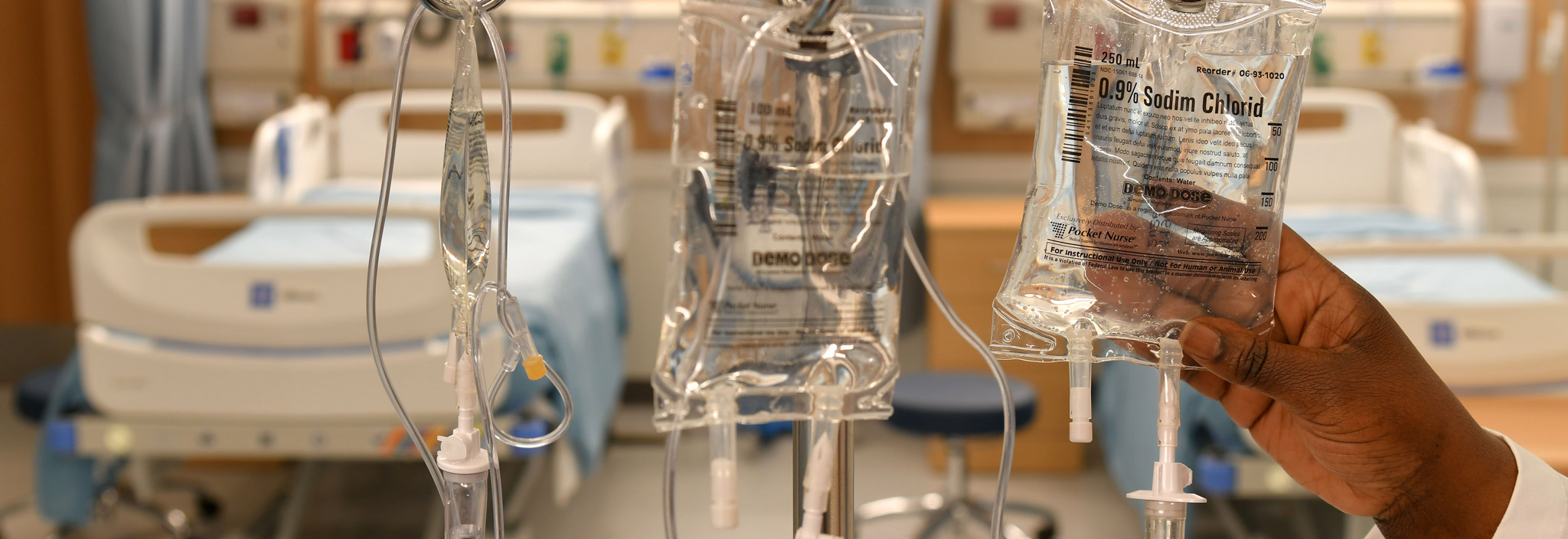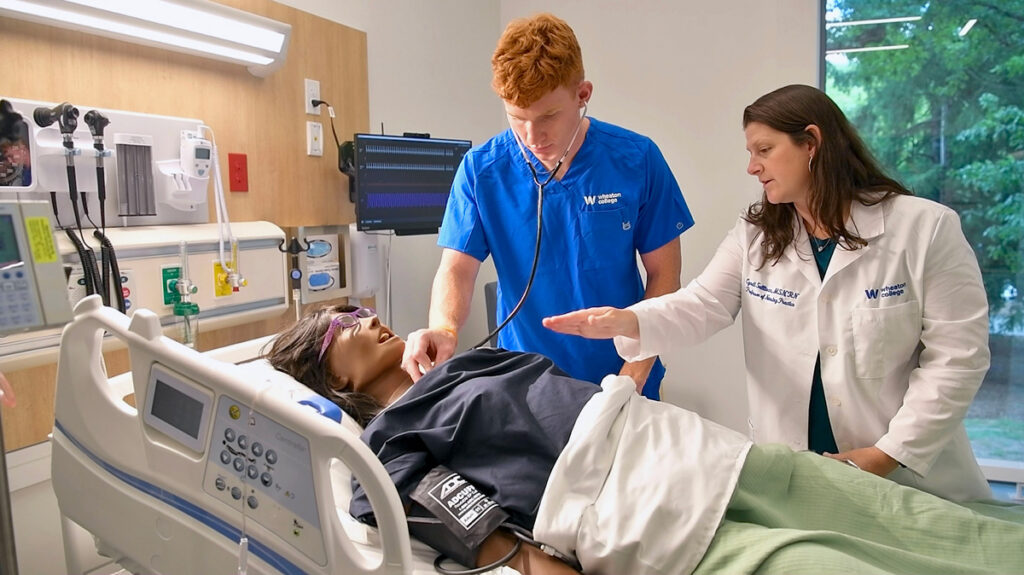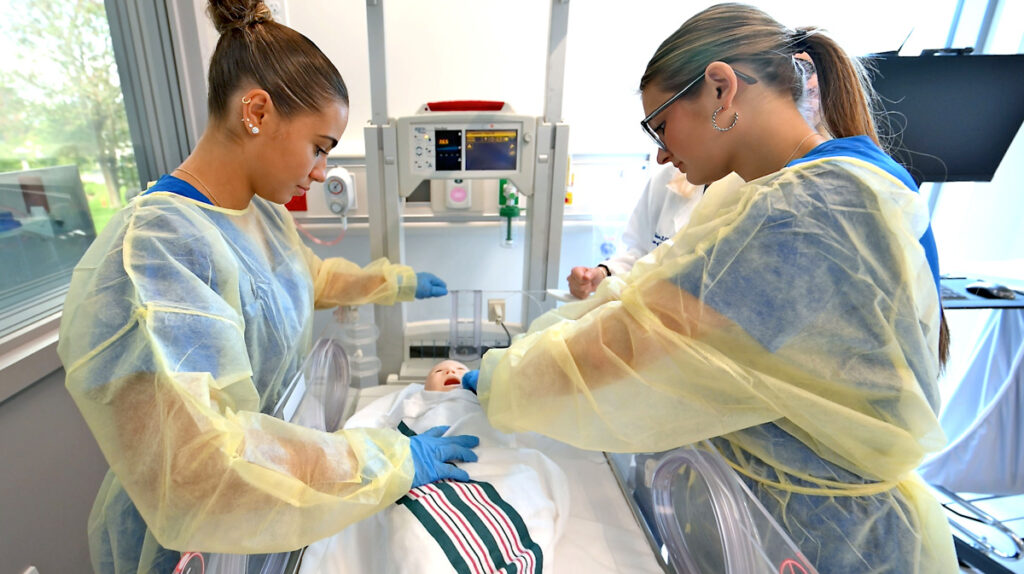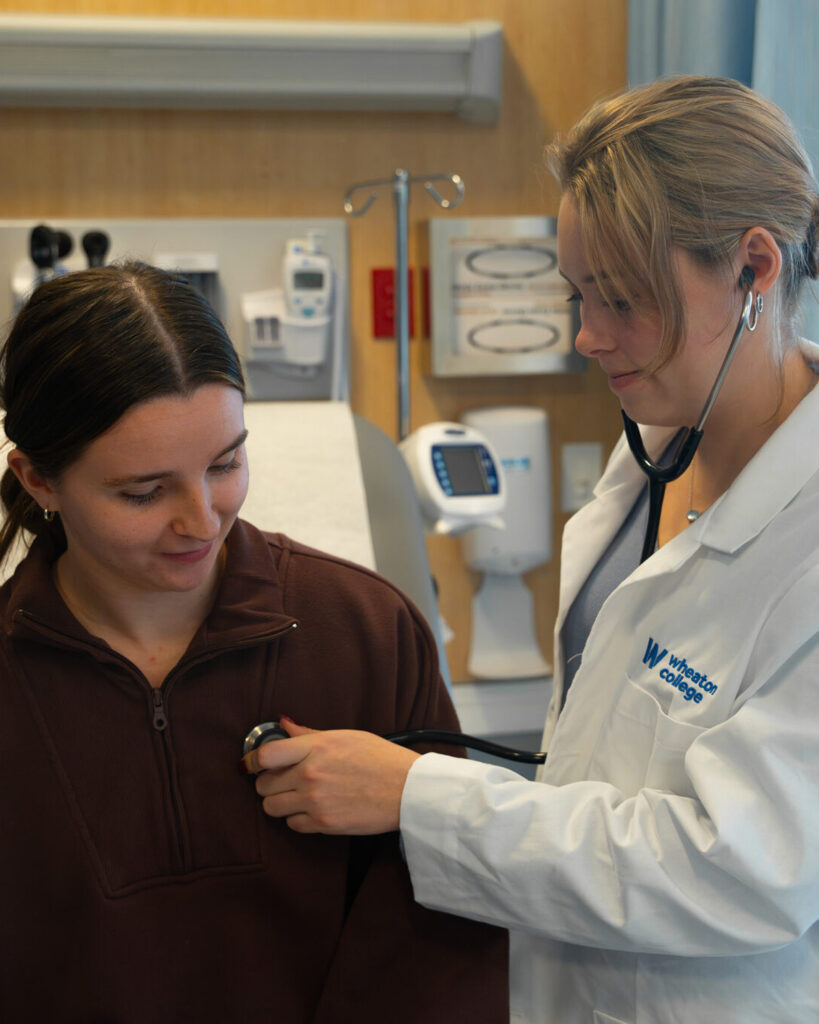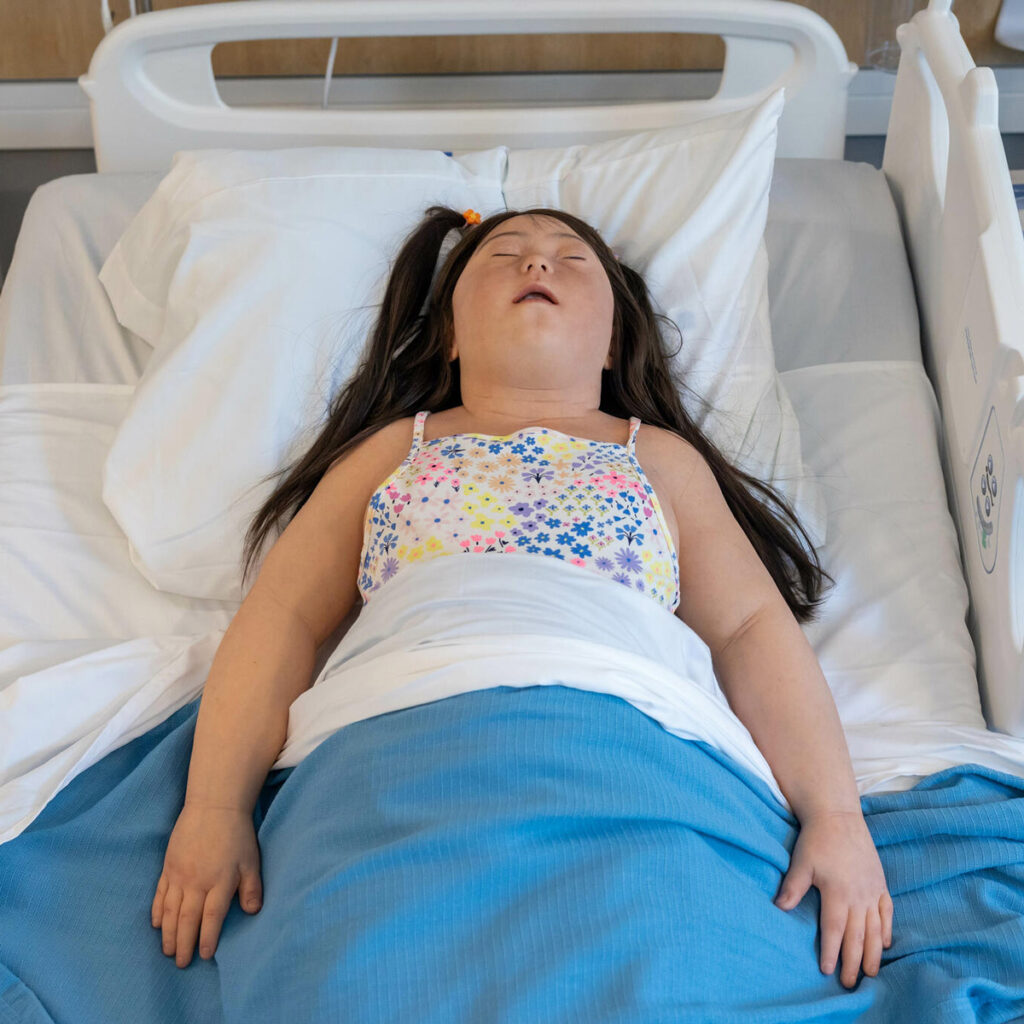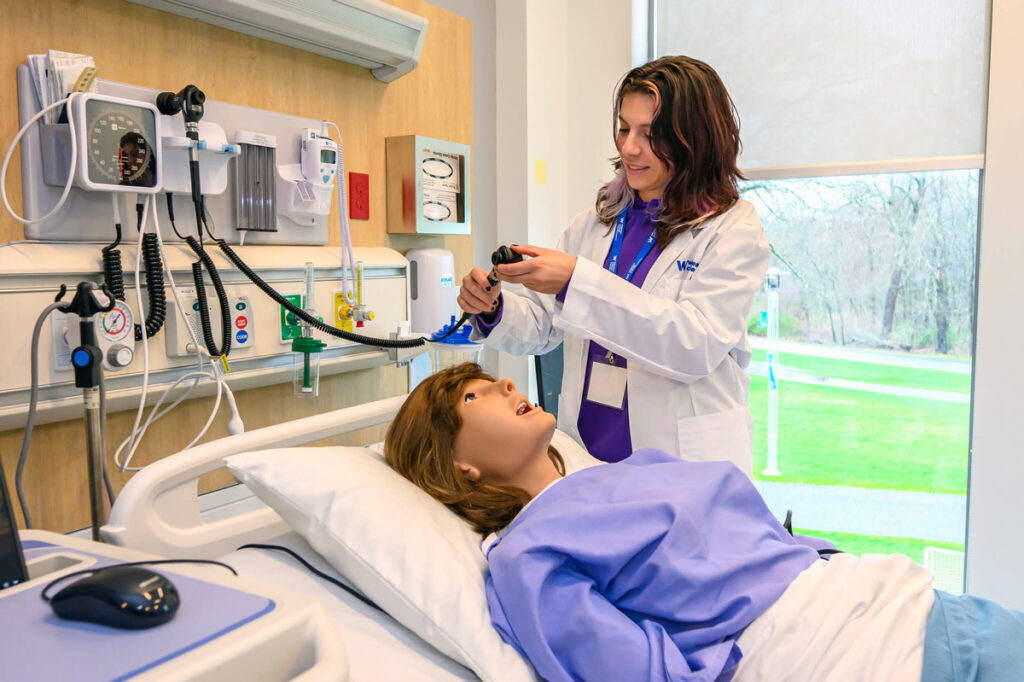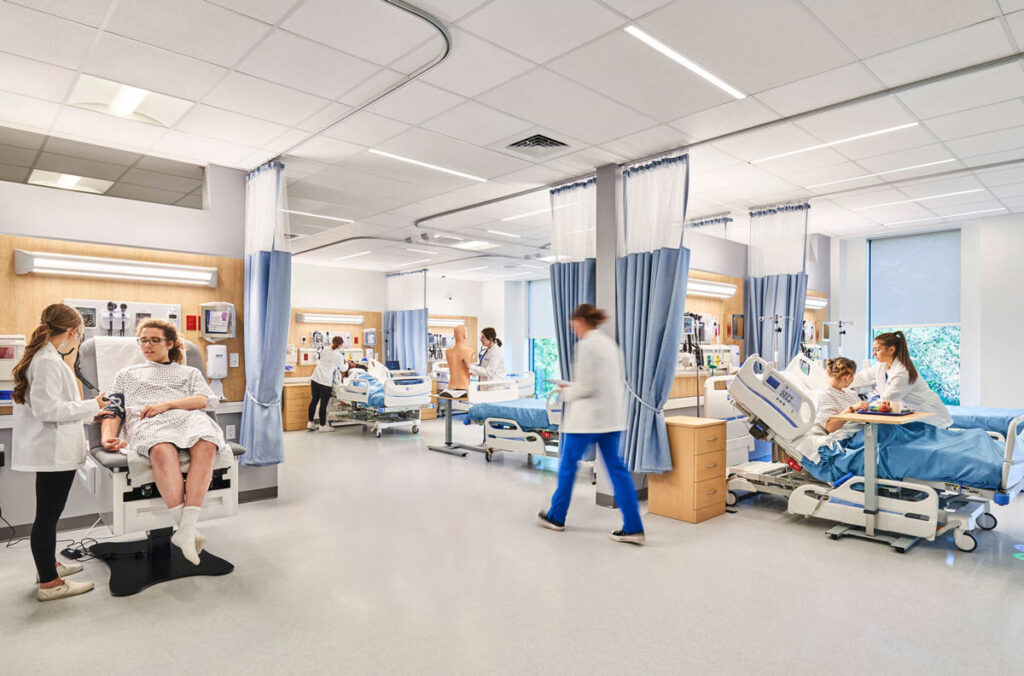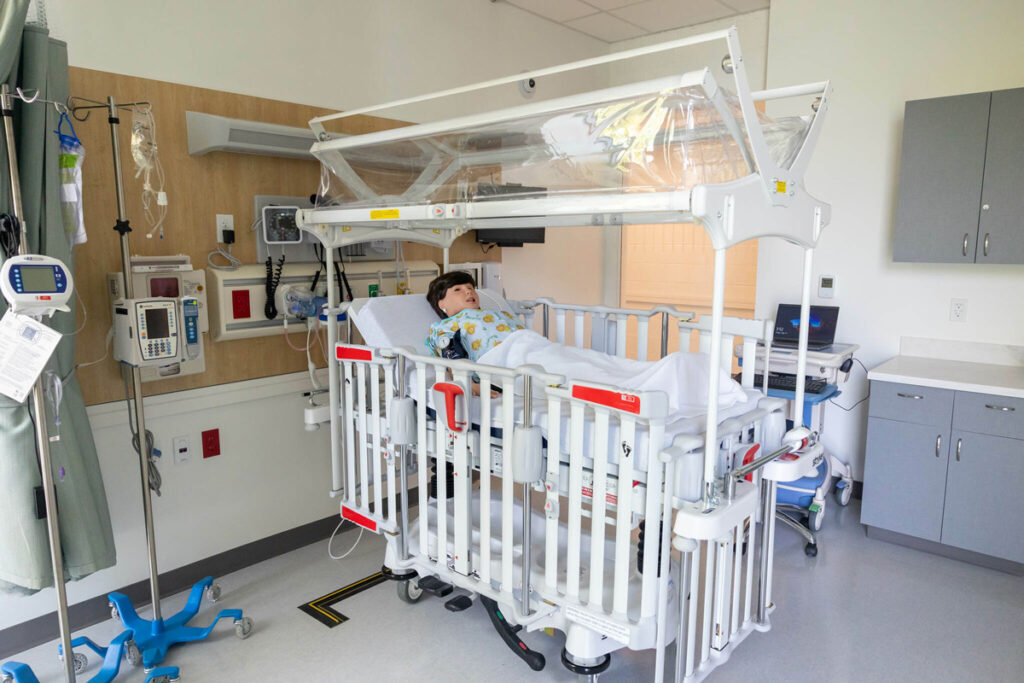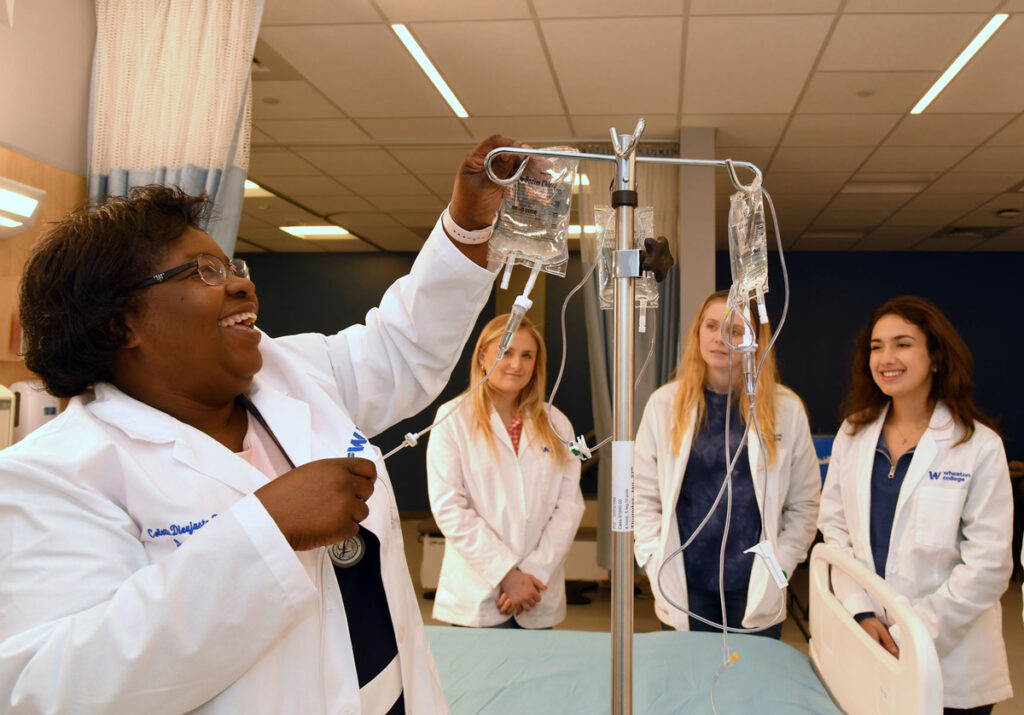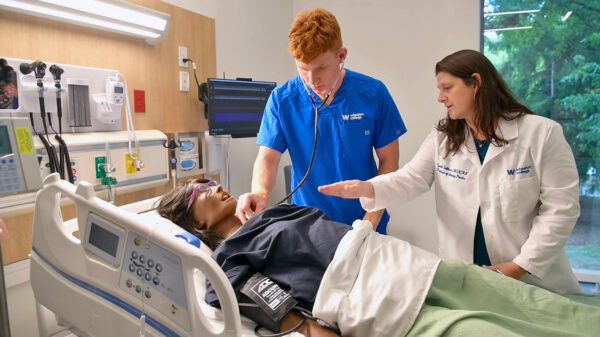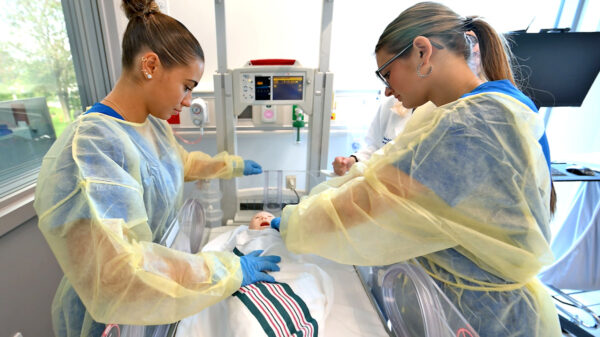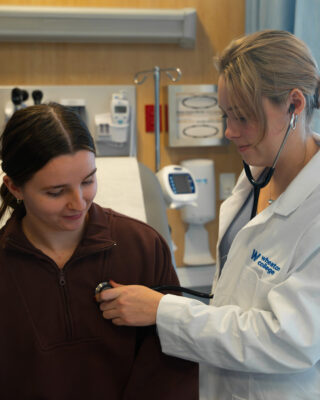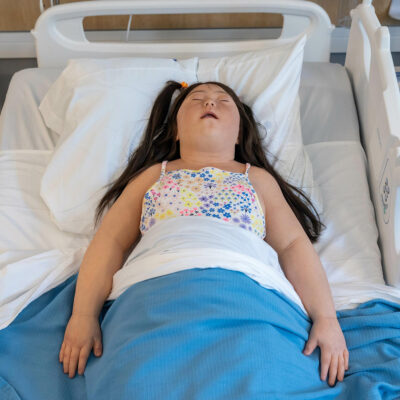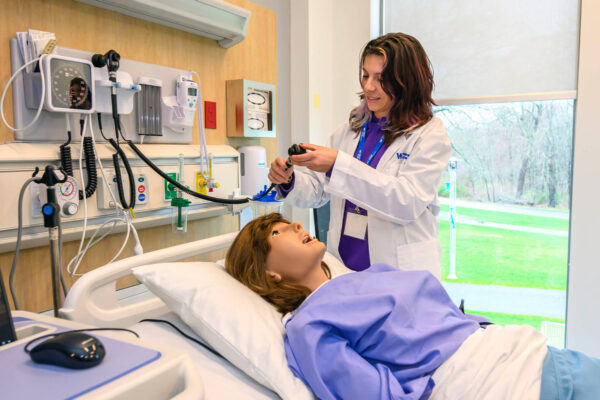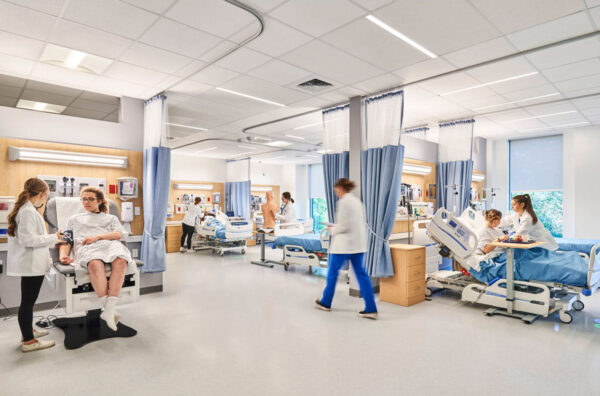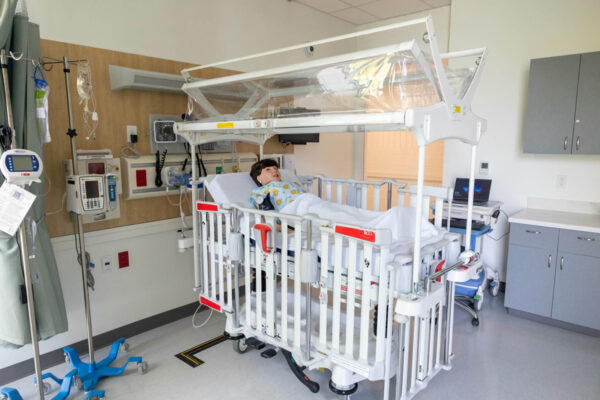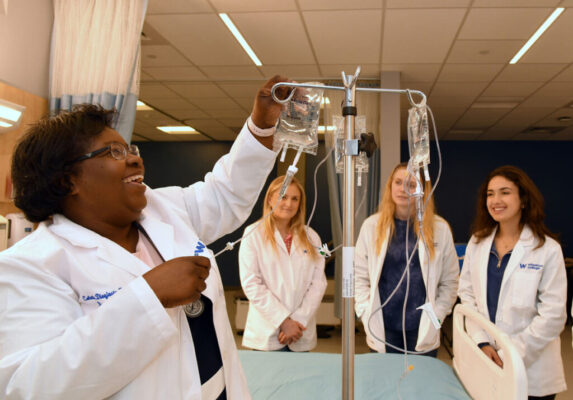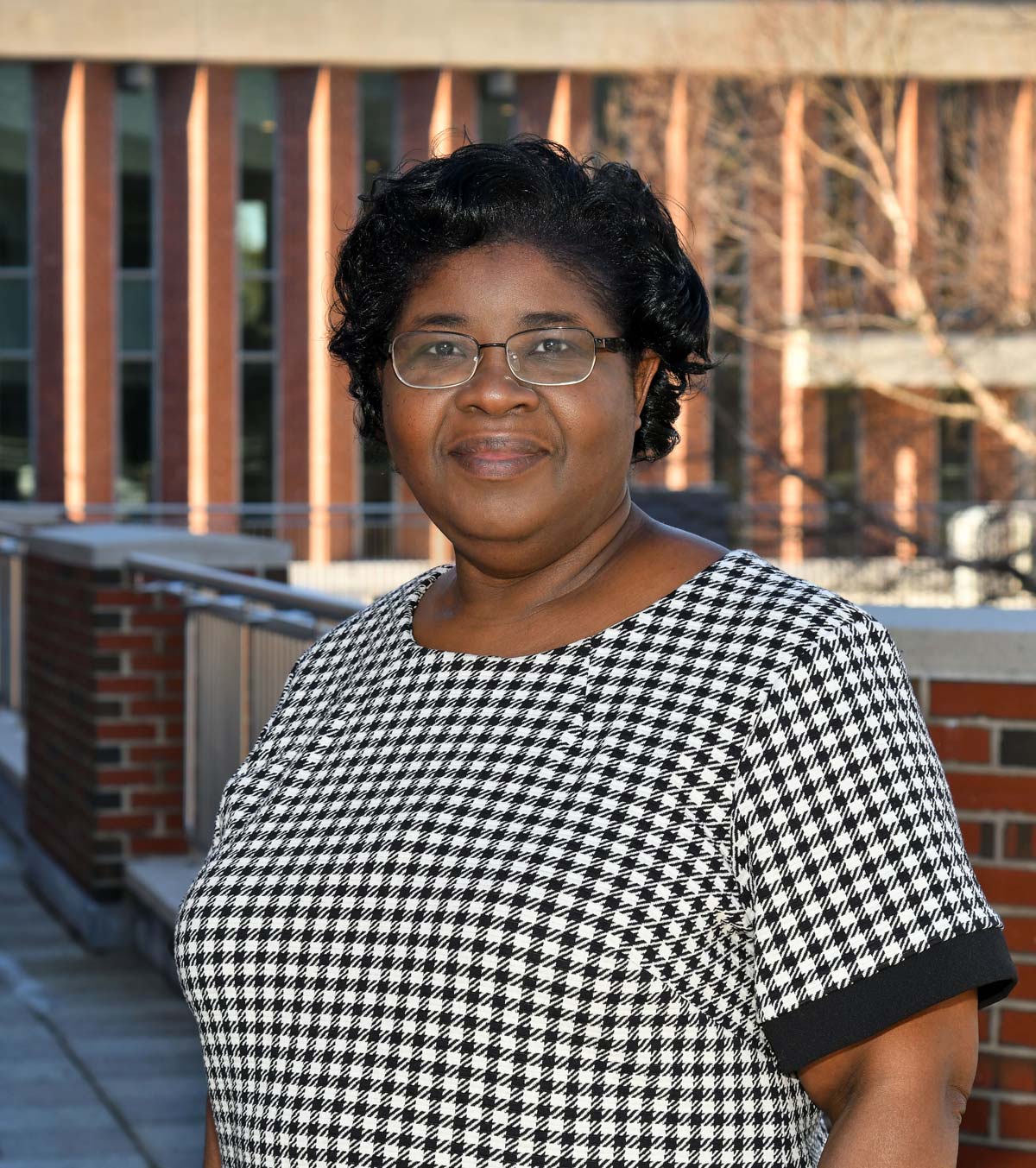Nursing
Bachelor of Science in Nursing (BSN)
The Wheaton College Bachelor of Science in Nursing (BSN) is a four-year nursing degree program that prepares future nurses to take on the modern-day challenges of patient-centered care. Our nursing graduates will be prepared to begin their careers as clinical practitioners, tackling the interconnected issues of health equity, gender and race-based disparities in health care, and global threats to health.
Admission to the Nursing Program is competitive. Students who do not qualify for direct entry into the program will be considered for general admission to Wheaton. Students interested in enrolling for Fall 2025 should apply via the Common Application or the Coalition Application.
Nursing Application Requirements
Wheaton College has been granted Initial Approval Status through the Massachusetts Board of Registration in Nursing for the operation of its Baccalaureate Degree Registered Nurse Program.
Licensure Disclosure
Licensure Disclosure for the Nursing Program
Accreditation
Major
What are our goals for Nursing Degree graduates?
The Bachelor of Science in Nursing Program at Wheaton seeks to prepare students for clinical practice as nurses at the intersection of community health and social justice. We seek to graduate professional nurses who will be:
- Leaders in all health care delivery, locally and globally
- Ready to meet the changing health care needs of patients and families within the continuum of care
- Skilled practitioners with a deep understanding of social justice, equity and global connectedness
What will you learn in Wheaton College’s Nursing Degree Program?
Introduction to Professional Nursing is taught in the first semester. The remainder of the first year of study will include global health, biology, nutrition and chemistry.
The Nursing Program focuses on social justice and global health and the required first-year experience course centers on promoting wellness.
Nursing Program Core Requirements
- Chemical Principles
- Fundamentals of Nursing and Health Assessment (classroom and clinical)
- Global Health/Nursing
- Human Anatomy and Physiology 1
- Human Anatomy and Physiology 2
- Integrated Concept of Pharmacology and Pathophysiology
- Introduction to the Biological Sciences
- Introduction to Professional Nursing
- Introductory Psychology
- Language Elective
- Lifespan Development
- Medical Ethics
- Microbiology
- Nursing Capstone Practicum (clinical)
- Nursing Lifespan Development
- Nutrition
- Population Health: Advanced Medical Surgery III (classroom and clinical)
- Population Health: Community Nursing (classroom and clinical)
- Population Health: Maternity (classroom and clinical)
- Population Health: Medical Surgery I (classroom and clinical)
- Population Health: Medical Surgery II (classroom and clinical)
- Population Health: Mental Health Nursing (classroom and clinical)
- Population Health: Pediatrics (classroom and clinical)
- Professional Nursing/Global Health Senior Seminar
- Research in Nursing and Health
- Senior Professional Nursing Leadership and Global Health Seminar
- Statistics (Introductory Statistics or Statistics for Social Sciences)
- Summer Abroad (Summer Away): Experience in Global/Domestic and Allied Health
- Nursing Synthesis
See the College Catalog for program roadmap and elective concentrations.
View the Nursing Student Handbook (pdf)
Simulation Center and Labs
Wheaton College has a state-of-the-art clinical simulation center to help students develop and improve their clinical skills and critical thinking ability. It boasts five labs including ICU, Pediatrics, Labor and Delivery, Medical Surgical and a Community Room.
Clinical simulation is an important part of nursing education. Simulation bridges the gap between classroom instruction and clinical experiences by providing a moderated learning experience where students can practice skills and learn new procedures in a safe environment.
In the simulation center, students will be able to practice complex procedures and take care of patients with diagnoses students are not able to care for in clinical settings. Using a combination of low- and high-tech fidelity lifelike mannequins, students will perform routine care (head-to-toe assessments, monitor vital signs) and nursing interventions, carry out physicians’ orders, administer medications and evaluate patient responses. These simulated activities will require students to synthesize and apply knowledge gained from courses and clinical experiences.
Colette Dieujuste, Ph.D., RN
Dean of Nursing
Colette Dieujuste received her B.S. in Nursing from Columbia Union College, her MSN from Boston College, and her Ph.D. in Nursing from the University of Massachusetts Medical School. She has taught across the undergraduate curriculum at Simmons College in a number of courses. She is an expert in curriculum design and evaluation.
Alumni in Nursing
Wheaton College graduates who pursue careers in nursing hold a variety of positions, from clinical practice to education and management.
Registered Nurse
Dayton Children’s Hospital
Durham, CT
Emergency Nurse Practitioner
UMass Memorial Medical Center
Worcester, MA
Surgical Intensive Care Nurse
Massachusetts General Hospital
Boston, MA
Nurse Midwife
BronxCare Health System
New York, NY
Pediatric Nurse Practitioner
Mill River Pediatrics
Cambridge, MA
Nurse Practitioner
Harvard Vanguard Medical Associates
Brookline, MA
Nurse Manager
Dana-Farber Cancer Institute
Manville, RI
Family Nurse Practitioner
AAP Asthma & Allergy Physicians, LLC
Brockton, MA
Registered Nurse
Planned Parenthood League of Massachusetts
Boston, MA
Family Nurse Practitioner
Millennium Physician Group
Venice, FL
Operating Room Nurse
Brigham and Women’s Hospital
Boston, MA
Pediatric Intensive Care Nurse
Yale-New Haven Hospital
New Haven, CT
Nurse Manager at Beverly Hospital and Affiliate Associate Professor of Nursing Practice at Northeastern University
Danvers, MA
Nurse Manager
Community Health Center
Meriden, CT
Nurse Practitioner
Cedars-Sinai Medical Group
Los Angeles, CA
Nurse Auditor
Baptist Health South Florida/Miami Cancer Institute
Miami, FL
Wellness Center Administrator
Middlesex School
North Billerica, MA
Department
Offered by the Nursing department.
